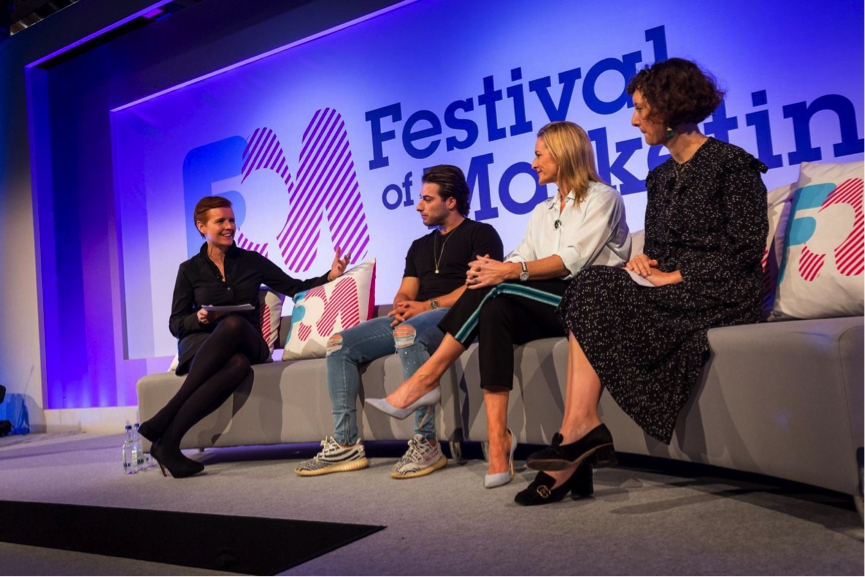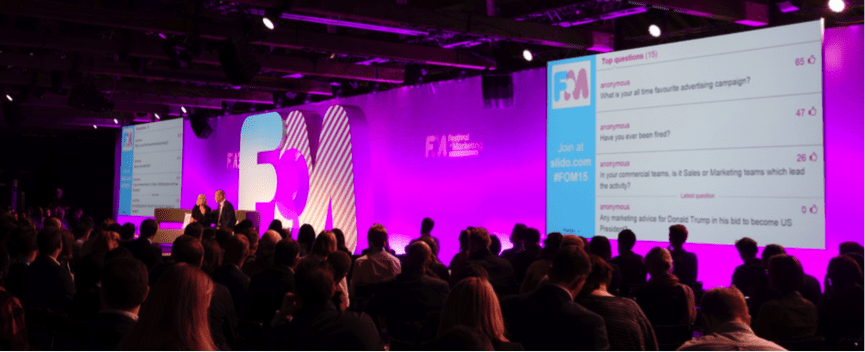Mental health & marketing – The Festival of Marketing 2018

Marketers make their money understanding people. Let's put that to use on the mental health problem that pervades our industry.
When I started in advertising as an account manager a year ago, I was told two things:
- My job was to be a “professional worrier”
- If you’re not in a meeting, assume it isn’t happening
Sound advice? Probably.
But it also suggests that paranoia and anxiety are not just burdens to bear in the marketing world. They’re core competencies.

Call me a bleeding-heart millennial, but it seemed fitting that this year’s Festival of Marketing, hosted at the sun-dappled Tobacco Docks, coincided with World Mental Health Day. As marketers we spend 37.5 hours a week (according to our timesheets) with our fingers on other people’s nerve centres, prodding and poking till they click ‘Buy’. It’s a broad canvas, and a big responsibility.
But before we look at our customers, we have to clean our own shoes.
My unceremonious induction into agency life was no accident – mix deadlines, egos and usage contracts and you’ve got the classic combo of sometimes-brilliant work and often-tried nerves.
Mind and NABS reported in a survey this year that 60% of people in marketing said poor mental health had affected their work in the last 12 months. 64% said they had considered leaving the industry because of it.
We have to look after our people better.
Top talent is a flight risk
Your employees’ health is crucial; for your karma and your bottom line. Daniel Fellows, an employer insights strategist at Indeed, reported in his talk that 79% of top (or ‘transformational’) talent is scouting for new jobs on a monthly basis.
Your best people know what they’re worth, so you need to show them that you know too. Making your team feel valued, respected and safe is key in retaining top performers in the face of the one-month-itch.

One useful tip from Mark Young, A&R at Liquorice Marketing, was to have an ‘emotional first-aider’: someone to recognise the signs of mental ill health and intervene appropriately, either by calming anxious employees down themselves or recommending more serious next steps (like contacting their GP). This is a smart and inexpensive way for employers to show their teams that their mental health is as important and as tangible as their physical health.
Further afield, there’s an opportunity for brands to be part of the solution, creating a business and consumer environment receptive to the needs of those with mental health problems. Audiences at the event were kept engaged with Slido, an interaction app which allows people to ask the speaker questions anonymously. It’s a simple solution that short-circuits the inevitable anxiety of putting up your hand and stuttering: “but what about AI”? When speakers wanted to challenge or qualify questions that came up on the screen, no one replied. The app gave them a voice when a room full of expectant faces took it away.

Between magic and science: getting to know your people
Speaking of AI: this year’s FoM was rife with talk titles like:
“Personalisation: a market segment of one”
“Think Human: it’s time to for brands to reconnect with people”
“Using analytics and insights for deeper audience intelligence”
It’s clear that the battle for marketing’s soul is still being waged between the data-heads and the ethnographers. Between magic and science. The mental health issue is a strong argument for bridging the gap.
At a panel on destigmatising mental health in the workplace, Joanna Kowalski, Head of Marketing at Time to Change, reported that the vast majority of workers who take time off for stress would lie about their illness to their boss.
Employers who reduce their team to KPIs and attendance rates – without understanding the reasons behind poor productivity and sick employees – risk a fundamental misunderstanding of their business.
This doesn’t mean data is useless or inherently harmful. It means that it’s the first step in a longer conversation with our employees (or our customers) about their needs.
Data helps us notice things: when our colleagues are behaving unusually, or when our customers have unfulfilled needs. But a human touch helps us treat the problem, rather than just try to rectify the outcome. It makes sure we have an open chat before issuing a formal reprimand for absenteeism.
It’s simple stuff: let’s do it better.
Header photo by Jeremy Thomas on Unsplash

